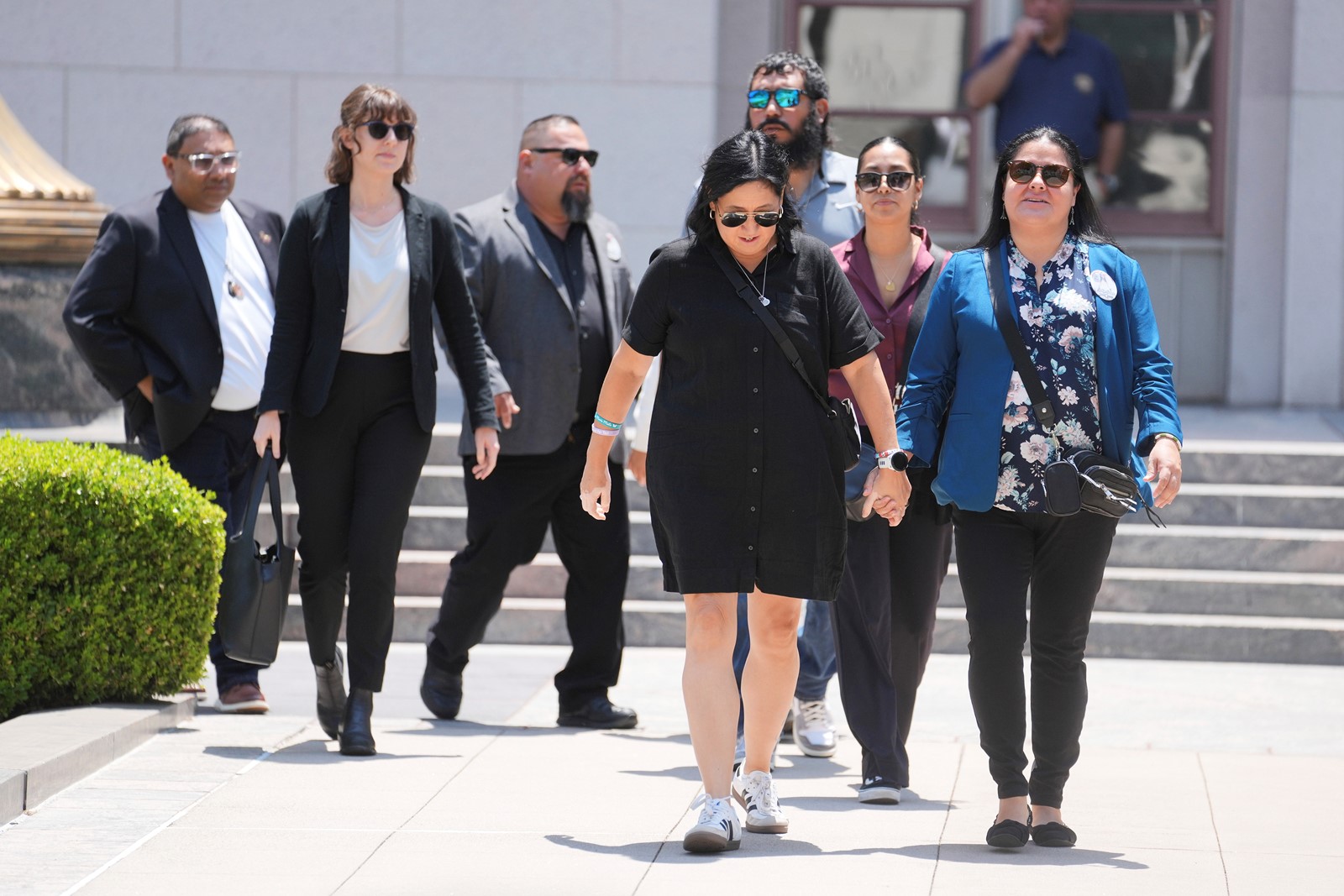
A lawyer for the maker of the video game Call of Duty argued Friday that a judge should dismiss a lawsuit brought by families of the victims of the Robb Elementary School attack in Uvalde, Texas, saying the contents of the war game are protected by the First Amendment.
The families sued Call of Duty maker Activision and Meta Platforms, which owns Instagram, saying that the companies bear responsibility for promoting products used by the teen gunman.
Three sets of parents who lost children in the shooting were in the audience at the Los Angeles hearing.
Activision lawyer Bethany Kristovich told Superior Court Judge William Highberger that the “First Amendment bars their claims, period full stop.”
“The issues of gun violence are incredibly difficult,” Kristovich said. “The evidence in this case is not.”
She argued that the case has little chance of prevailing if it continues, because courts have repeatedly held that “creators of artistic works, whether they be books, music, movies, TV or video games, cannot be held legally liable for the acts of their audience.”
The lawsuit, one of many involving Uvalde families, was filed last year on the second anniversary of one of the deadliest school shootings in U.S. history. The gunman killed 19 students and two teachers. Officers finally confronted and shot him after waiting more than an hour to enter the fourth-grade classroom.
Kimberly Rubio, whose 10-year-old daughter Lexi was killed in the shooting, was among the parents who came from Texas to Southern California, where Activision is based, for the hearing.
“We traveled all this way, so we need answers,” Rubio said outside the courthouse. “It’s our hope that the case will move forward so we can get those answers.”
An attorney for the families argued during the hearing that Call of Duty exceeds its First Amendment protections by moving into marketing.
“The basis of our complaint is not the existence of Call of Duty,” Katie Mesner-Hage told the judge. “It is using Call of Duty as a platform to market weapons to minors.”
The plaintiffs’ lawyers showed contracts and correspondence between executives at Activison and gunmakers whose products, they said, are clearly and exactly depicted in the game despite brand names not appearing.
Mesner-Hage said the documents show that they actually prefer being unlabeled because “it helps shield them from the implication that they are marketing guns to minors,” while knowing that players will still identify and seek out the weapons.
Kristovich said there is no evidence that the kind of product placement and marketing the plaintiffs are talking about happened in any of the editions of the game the shooter played.


 PREVIOUS ARTICLE
PREVIOUS ARTICLE
